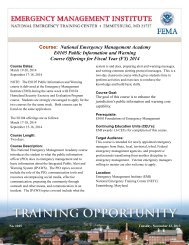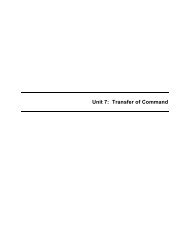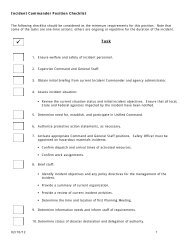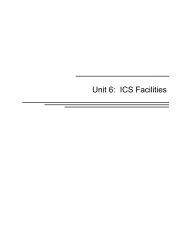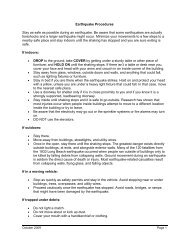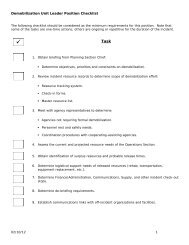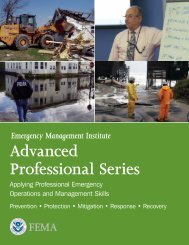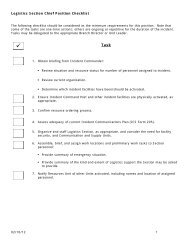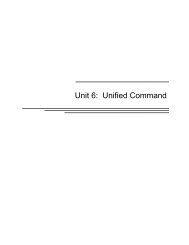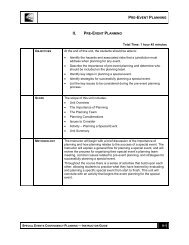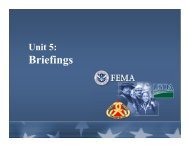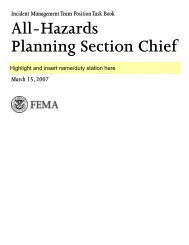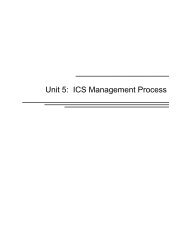Effective Communication - Emergency Management Institute ...
Effective Communication - Emergency Management Institute ...
Effective Communication - Emergency Management Institute ...
You also want an ePaper? Increase the reach of your titles
YUMPU automatically turns print PDFs into web optimized ePapers that Google loves.
UNIT 4: IDENTIFYING COMMUNITY-SPECIFIC COMMUNICATIONS ISSUES<br />
Introduction<br />
So far in this course, you have learned basic communications skills and how<br />
communicating in an emergency is different from communicating day-to-day.<br />
But have you considered that some people in your community may have<br />
specific communications needs that may require you to change the way you<br />
communicate with them in an emergency? In this unit, you will learn about why<br />
traditional messages don’t always work across cultures or with special-needs<br />
groups.<br />
Unit 4 Objectives<br />
After completing this unit, you should be able to:<br />
Identify potential verbal and nonverbal communication issues related to age,<br />
culture, language, or disability.<br />
Analyze your community to identify groups requiring special consideration<br />
when preparing and delivering emergency communication.<br />
Develop a strategy for refocusing your emergency communication to meet<br />
the special needs of the community.<br />
Why Traditional Messages Don’t Always Work<br />
To illustrate how cultures shape behavior, read the short case study on the<br />
following page. Then, try to analyze what you think occurred.<br />
<strong>Effective</strong> <strong>Communication</strong> Page 4.1



